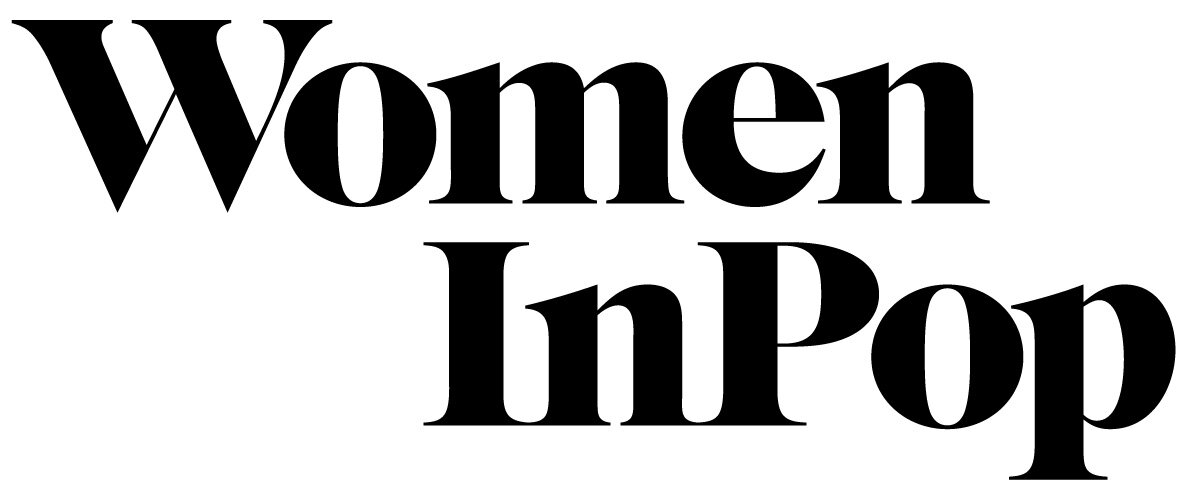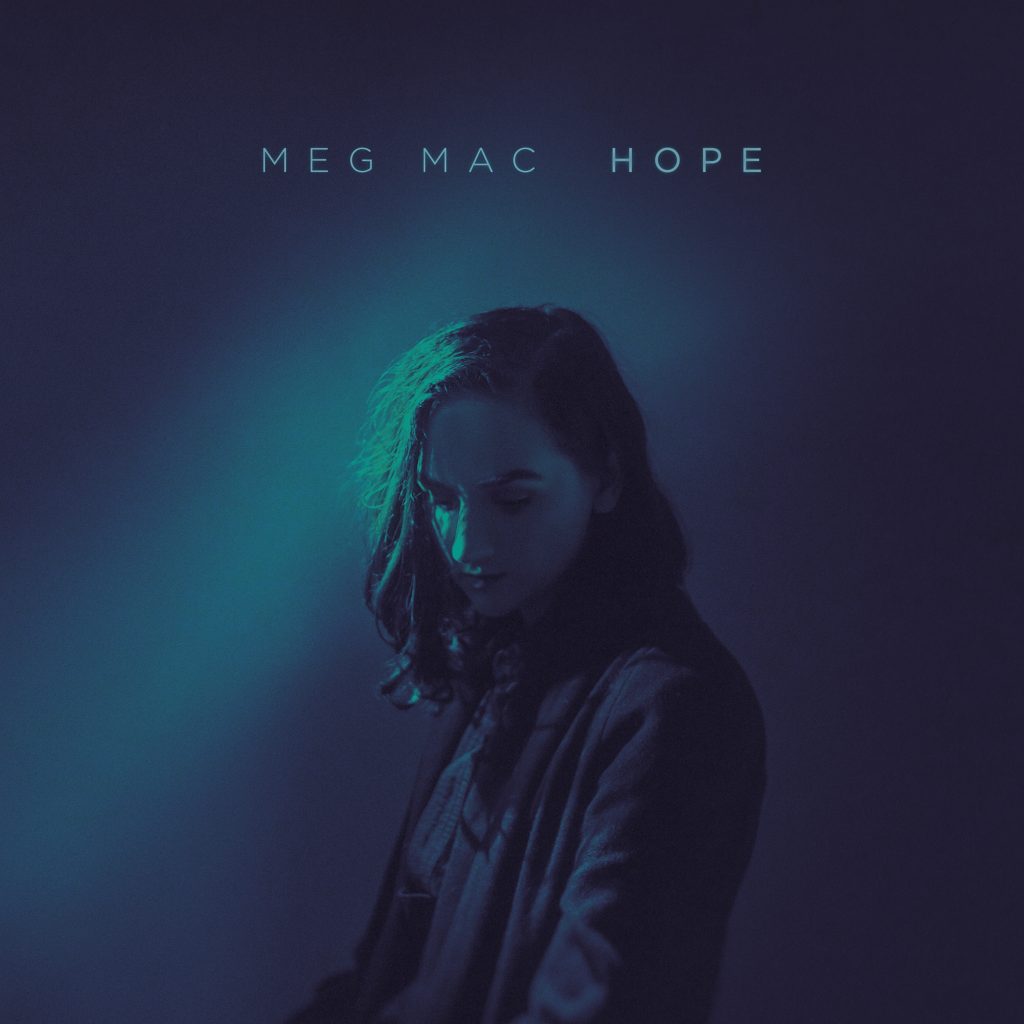INTERVIEW: Meg Mac’s mini-album Hope goes big on powerful pop
Image: Metaxia Coustas
Released 7 June, Hope packs in seven tracks of the Australian singer/musician’s strongest songwriting to date, with a voice that delivers the real feel every time
Melbourne-based, Sydney-born Meg Mac (full name Megan McInerney) may have just completed a sell-out tour of the UK, the US and Europe and been feted by the likes of Billboard, The New York Times and BuzzFeed, but she is the first to admit there was a time she struggled to connect the dots with music. “I had piano lessons when I was a kid and I liked singing but for some reason I never realised that you could do both at the same time,” she laughs. “I didn’t figure that out until I finished high school. My sister showed me how to play a simple chord and I was like, ‘Why did no one teach me a chord?’”
There can be no doubt now that Mac knows her way around the whole keyboard, chords and all, and with the release of her first ever mini-album Hope on 7 June she has created a haunting and moving collection of tracks that cements her reputation as one of the most gifted singer-songwriters around.
Mac grew up in an Irish family in Sydney. Both her parents were musical; her father was a fan of soul music and artists such as Van Morrison, Bob Dylan and Nina Simone, while her mother plays the piano and accordion. “My mum was always singing old Irish folk songs, and without music,” she remembers. “So I’ve always loved being able to just sing a song that doesn’t need any background music.” After her breakthrough moment on the piano, there was no looking back: music became her life. “When I discovered that you could write music, everything just changed for me, and the piano is where I would spend all my time,” she says. “I didn’t know music meant that much to me until I ended up making my own.”
A career in music then became something of a necessity. “When I started writing songs and realised that what I was doing was called songwriting, and that it was a thing, I was like, ‘OK, this is what I want to do.’” In 2013, after completing a music degree at the Western Australian Academy of Performing Arts, she released her first single ‘Known Better’ and the following year she was crowned Triple J’s Unearthed Artist of the Year. In 2015, her debut EP MegMac saw her nominated for Best Female Artist at the ARIA Awards. Her success continued to grow and in 2017 her debut album Low Blows peaked at number 2 on the Australian album charts.
When it came to the creation of the seven-track mini-album Hope, Mac says it was almost accidental. “I made this album down the road from my house with a guy called Myles Wootton,” she says. “I thought it might be an EP. We weren’t really sure – we were just seeing where these songs were taking us.” Even if Mac and Wootton were recording without a plan in place, the results were so good some tracks were barely altered from their original demo recordings. “What’s crazy is after going through the process of recording and everything, a lot of the vocals are my demo vocals,” she reveals. “All these songs ended up like the first time I sang it and did the take – it was the one.”
Mac’s voice has long been praised for its depth, strength and emotive power, and her ability to make an album full of one-take vocals is testament to her talents. First single from Hope, ‘Give Me My Name Back’, sees her switch from earthy and raw in the verses to a soft, deliberate fragility in the chorus that melds beautifully with the message of the song – a rallying cry for those who have suffered abuse and discrimination. On third single ‘I’m Not Coming Back’, Mac’s vocal delivery has a powerful, clipped anger at its core, before the song slips down into a quieter resignation in the closing lines: “I’m not coming back, not coming back / I bet you didn’t even notice that”. Mac says the song is about one-sided relationships. “Everyone’s got that person in their life who’s not there when you need them – but they need you all the time,” she explains. “Maybe we’ve all been that person for someone – I don’t know. But I just really like the idea of it.”
Hope, in defiance of its title, has a thread of melancholy running through it, perhaps most noticeably on the title track. “I know it’s no kind of life / And I hope it’s gonna be alright / Can’t keep using up all my days thinking about it / … I’ll hold on, baby, ’til it kills me” she sings, while a shuffling, almost trippy electro beat swirls in the background. “It’s this dark, kind of desperate song about a life being lived in hope,” Mac says. ”It’s the opposite of what you would think. It’s not positive and hopeful and nice. It’s actually kind of sad.” The inspiration for the song – Mac’s favourite on the album – came in a way that was new to her. “I had this book sitting on the piano and it has this painted portrait on it of a woman,” she says. “I almost thought I was writing the song about this woman and I used that [for inspiration], which is something I haven’t really done before.” Usually her song ideas hit her randomly, though messing about with her loop pedals, Mac says, often helps – singing vocal lines, recording and looping them, then adding more vocal layers on top. It’s a technique that ended up forming the foundation of ‘Hope’: “That line that repeats – ‘I’ll hold on, baby, ’til it kills me, kills me, kills me’ – it’s a loop that I made that sounds a bit haunting. And that ended up kind of holding the whole song together.”
Elsewhere on Hope, ‘Head Away’ is a soaring, anthemic depiction of a broken relationship – “Get your head away from my head / It’s been too long next to mine / Get your bed away from my bed / Cos even if I wanted to I can’t wake up next to you” – and perhaps the most surprising moment comes with the inclusion of Mac’s cover of the 1973 Sly & the Family Stone funk classic ‘If You Want Me to Stay’, shortened to ‘Want Me to Stay’ here. While the original is raw, swaggering and funky, Mac has turned the song into a beautiful, piano-led heartbreak ballad that develops into a powerhouse track with an edge of angst. It is a textbook example of how to do a cover version well, reimagining a song into something so breathtakingly original and good it feels almost brand new. “It was just meant to be piano and vocal and we did it all in one take,” Mac says. “And then everything just happened. We ended up adding all this junk and turning it into a song.”
Hope may be a “mini” album, but that just means there’s no filler – all seven tracks are powerful and emotionally strong, and all deserve their place on the track list. The subject matter that draws the songs together may be pensive, but the songs are never a tough listen; in fact, perversely, they fill you with a joy that is intricate and addictive, and Mac’s vocals are alone worth the journey. We may be surrounded in our daily lives by insincere talk, but there is something so intrinsically human and warm about Hope that marks it out as something very special. And for Mac, it is that human connection with listeners that is the most important part of her musical career. “I like to look at people,” she says. “I might be playing at a big venue or a big festival and there’s thousands of people there which is pretty overwhelming, but you know when you catch someone’s eye and then you both smile? It makes me feel more normal when I can look people in the eye.” Take note, audience members: Meg Mac is watching you. Prepare to be drawn in.
Hope is released through littleBIGMANrecords/EMI Music on Friday 7 June on all platforms.
Meg Mac’s Give Me My Name Back tour concludes next week in Adelaide at HQ on 13 June and the Astor Theatre in Perth on 14 June. Tickets are available here.
To keep up with all things Meg Mac, you can follow her on Facebook, Instagram and Twitter.







